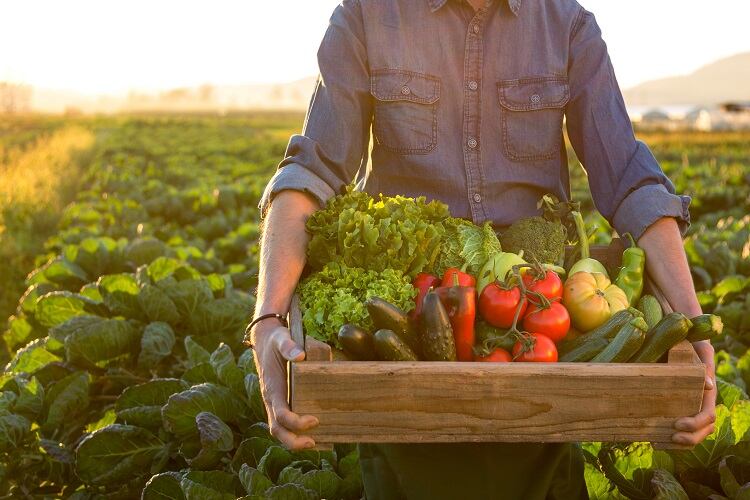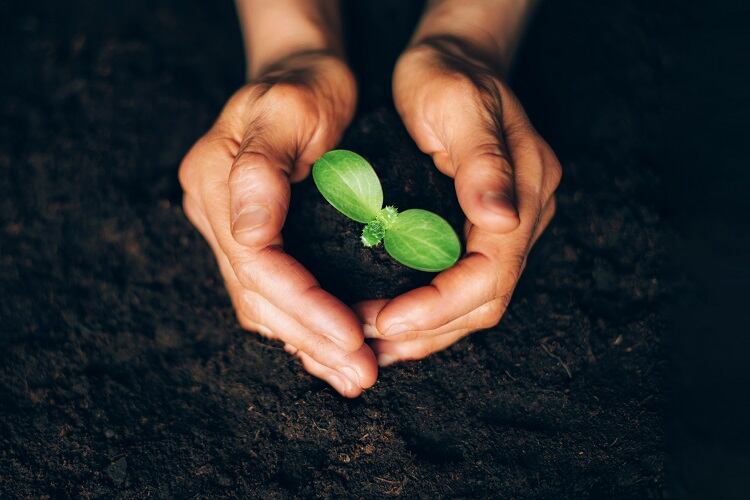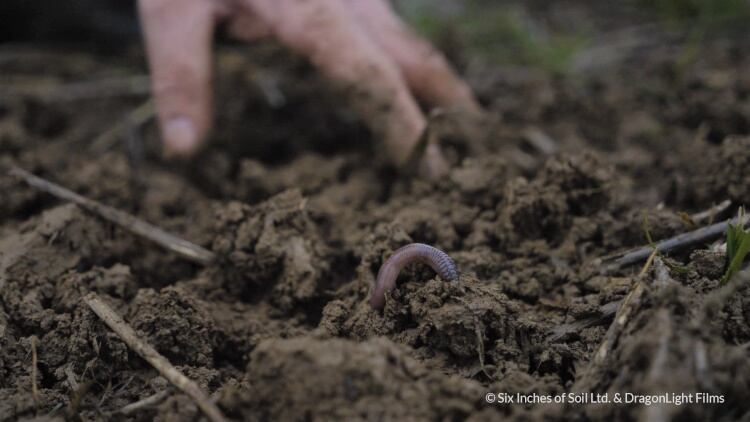A study by researchers at University College London, the University of Edinburgh and the UK Centre for Ecology & Hydrology has discovered a severe imbalance between potassium removal and replenishment within the global farming industry.
Why do we need potassium in our soil?
Potassium plays a significant role in the growing of crops. It’s a vital nutrient for plant growth, helping with photosynthesis and respiration.
According to researchers, “potassium is one of the essential nutrients in plants.” It has many functions, including the regulation of the opening and closing of stomata which are the breathing holes found on plant leaves and therefore regulate moisture loss from the plant.”
Potash Development Association (PDA), which provides technical information to support correct use of potash (fertiliser potassium) in soils and plant nutrition agreed stating, “potash is an essential nutrient for all crops, grassland and livestock. Maintaining soil fertility to produce economically viable yields requires the appropriate use of all plant nutrients, of which one of the most important is potassium.”
The study, published in Nature Food, found that more potassium is being removed from agricultural soils than is being replenished. It also found that this issue exists across the globe and is therefore a threat to all livestock and agricultural food sources.
What does potassium deficiency in soil mean for food security?
Potassium deficiency in farming soils is not currently widely recognised as a significant threat to food security, however if the nutrient imbalance is not addressed then crop yields will decline, placing an immediate threat on food production.
Researchers found that approximately 20% of global agricultural soils face severe potassium deficiency, with certain regions suffering worse than others.

Why is there a potassium deficiency in the soil?
Farmers do often spread potassium-rich fertilisers over their fields to replenish the depleted potassium levels. However, supply issues can inhibit its use, and there are lingering questions about its environmental impact.
Farmers often use potash to replenish potassium within the soil. However, the price has been extremely volatile in recent years, with the research team noting that in April 2022, the price of potash increased 500% above the previous year. This was a result of what they referred to as a “perfect storm”, where the demand for fertiliser increased, energy costs increased, and influencing government actions, including the Russian invasion of Ukraine, took place.
Russia and Belarus are two of the world’s biggest producers of potash, exporting around 42% of the world’s potash supply. However, following Russia’s invasion of Ukraine in March 2022, the UK, US, Canada, and the EU imposed import sanctions on both countries, disrupting global supplies and exacerbating the price spike.
Since the initial price spike, the cost of potash has fallen by approximately 50%, but remains high, raising concerns that farmers will not be able to access sufficient fertiliser supplies to maintain food production under the current food system.
However, there is an argument to suggest that farming systems should not be so reliant upon fertilisers to nourish the soil. According to the Soil Association, the overuse of fertilisers can result in nitrogen pollution, which occurs when some nitrogen compounds, such as ammonia and nitrous oxide, become too abundant. The United Nations has also warned of the potential health implications of excessive and inefficient fertiliser use, saying it could cause issues such as, "drinking water contamination and eutrophication of freshwater systems and coastal zones." The UN also stated that some fertilisers can, "impact human life due to unsafe storage practices."
As a result of this, calls for agricultural reform have increased and environmental organisations are campaigning for a complete overhaul of our food systems in order to make the food industry sustainable and ensure food security for the future.
What can be done to replenish potassium in agricultural soil and support food security?
In response to the findings of the study, the researcher team provided six recommendations for policies and practices to prevent potential crop yield declines, safeguard farmers from price volatility and address environmental concerns.
- Setting up a global assessment of current potassium stocks and flows to identify the most at-risk countries and regions
- Establishing national capabilities for monitoring, predicting, and responding to potassium price fluctuations
- Helping farmers maintain sufficient soil potassium levels with further research about the yield implications of limited potassium in various crops and soils
- Evaluating the environmental effects of potash mining and developing sustainable application practices
- Developing a global circular potassium economy that minimises the use and maximises the reuse and recycling of the nutrient
- Increasing intergovernmental cooperation through the UN and other agencies to develop global policy coordination akin to what’s been developed for nitrogen
Source: Global food security threatened by potassium neglect
Published online: 19 February 2024
DOI: https://www.nature.com/articles/s43016-024-00929-8
Authors: Will J. Brownlie, Peter Alexander, Mark Maslin, Miguel Cañedo-Argüelles, Mark A. Sutton, Bryan M. Spears



